第23章 CHAPTER II.(2)
Mention was one day made to the Queen of a drawing made by her, and presented by the Empress to M. Gerard, chief clerk of Foreign Affairs, on the occasion of his going to Vienna to draw up the articles for her marriage-contract. "I should blush," said she, "if that proof of the quackery of my education were shown to me. I do not believe that I ever put a pencil to that drawing." However, what had been taught her she knew perfectly well. Her facility of learning was inconceivable, and if all her teachers had been as well informed and as faithful to their duty as the Abbe Metastasio, who taught her Italian, she would have attained as great a superiority in the other branches of her education. The Queen spoke that language with grace and ease, and translated the most difficult poets. She did not write French correctly, but she spoke it with the greatest fluency, and even affected to say that she had lost German. In fact she attempted in 1787 to learn her mother-tongue, and took lessons assiduously for six weeks; she was obliged to relinquish them, finding all the difficulties which a Frenchwoman, who should take up the study too late, would have to encounter. In the same manner she gave up English, which I had taught her for some time, and in which she had made rapid progress. Music was the accomplishment in which the Queen most delighted. She did not play well on any instrument, but she had become able to read at sight like a first-rate professor. She attained this degree of perfection in France, this branch of her education having been neglected at Vienna as much as the rest. A few days after her arrival at Versailles, she was introduced to her singing-master, La Garde, author of the opera of "Egle." She made a distant appointment with him, needing, as she said, rest after the fatigues of the journey and the numerous fetes which had taken place at Versailles; but her motive was her desire to conceal how ignorant she was of the rudiments of music. She asked M. Campan whether his son, who was a good musician, could give her lessons secretly for three months. "The Dauphiness," added she, smiling, "must be careful of the reputation of the Archduchess." The lessons were given privately, and at the end of three months of constant application she sent for M. la Garde, and surprised him by her skill.
The desire to perfect Marie Antoinette in the study of the French language was probably the motive which determined Maria Theresa to provide for her as teachers two French actors: Aufresne, for pronunciation and declamation, and Sainville, for taste in French singing; the latter had been an officer in France, and bore a bad character. The choice gave just umbrage to our Court. The Marquis de Durfort, at that time ambassador at Vienna, was ordered to make a representation to the Empress upon her selection. The two actors were dismissed, and the Princess required that an ecclesiastic should be sent to her. Several eminent ecclesiastics declined taking upon themselves so delicate an office; others who were pointed out by Maria Theresa (among the rest the Abbe Grisel) belonged to parties which sufficed to exclude them.
The Archbishop of Toulouse one day went to the Duc de Choiseul at the moment when he was much embarrassed upon the subject of this nomination; he proposed to him the Abby de Vermond, librarian of the College des Quatre Nations. The eulogistic manner in which he spoke of his protege procured the appointment for the latter on that very day; and the gratitude of the Abbe de Vermond towards the prelate was very fatal to France, inasmuch as after seventeen years of persevering attempts to bring him into the ministry, he succeeded at last in getting him named Comptroller-General and President of the Council.--[Comte de Brienne, later Archbishop of Sens.]
This Abbe de Vermond directed almost all the Queen's actions. He established his influence over her at an age when impressions are most durable; and it was easy to see that he had taken pains only to render himself beloved by his pupil, and had troubled himself very little with the care of instructing her. He might have even been accused of having, by a sharp-sighted though culpable policy, purposely left her in ignorance. Marie Antoinette spoke the French language with much grace, but wrote it less perfectly. The Abbe de Vermond revised all the letters which she sent to Vienna. The insupportable folly with which he boasted of it displayed the character of a man more flattered at being admitted into her intimate secrets than anxious to fulfil worthily the high office of her preceptor.
[The Abbe de Vermond encouraged the impatience of etiquette shown by Marie Antoinette while she was Dauphiness. When she became Queen he endeavoured openly to induce her to shake off the restraints she still respected. If he chanced to enter her apartment at the time she was preparing to go out, "For whom," he would say, in a tone of raillery, "is this detachment of warriors which I found in the court? Is it some general going to inspect his army? Does all this military display become a young Queen adored by her subjects?" He would call to her mind the simplicity with which Maria Theresa lived; the visits she made without guards, or even attendants, to the Prince d'Esterhazy, to the Comte de Palfi, passing whole days far from the fatiguing ceremonies of the Court. The Abbe thus artfully flattered the inclinations of Marie Antoinette, and showed her how she might disguise, even from herself, her aversion for the ceremonies observed by the descendants of Louis XIV.-MADAME CAMPAN.]